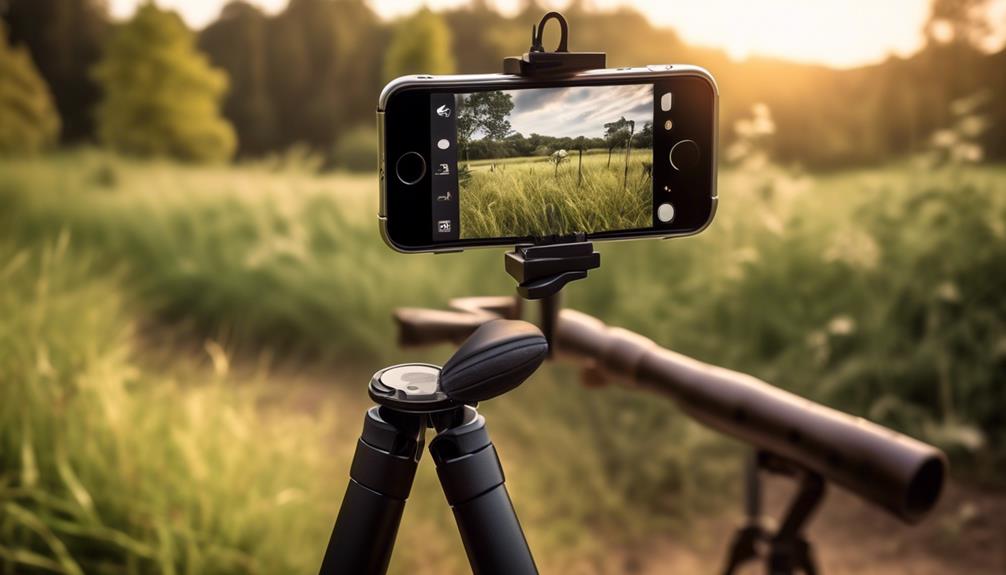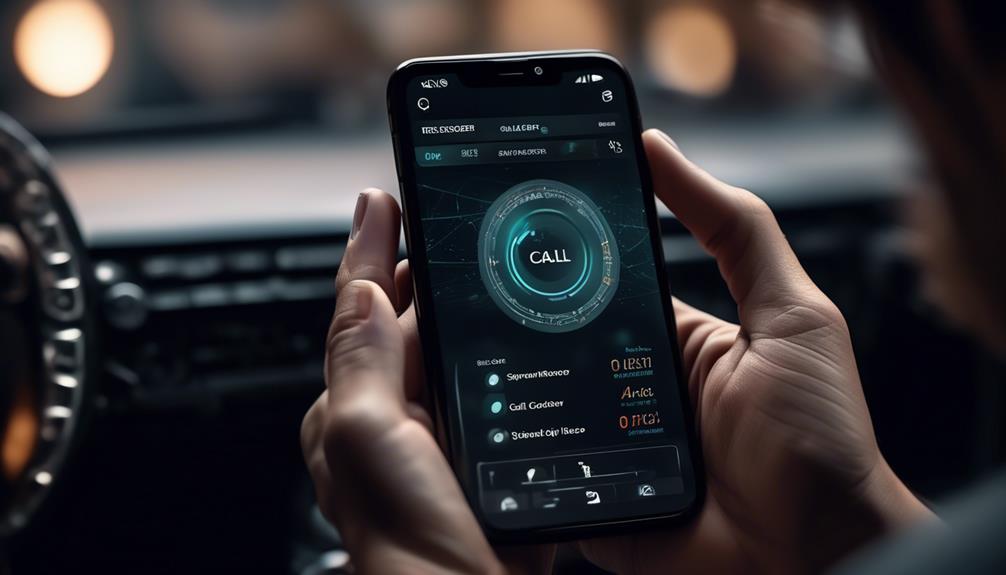You may be surprised to find out that your service provider does not usually record and store your phone calls.
But have you ever wondered about the exceptions to this rule? There are certain situations where call recording may occur, and understanding the legal and privacy implications can be crucial.
Let's explore the complexities surrounding call recording and storage to shed light on this often misunderstood aspect of telecommunications.
Key Takeaways
- Call recording and storage are subject to legal requirements and regulations, such as the Electronic Communications Privacy Act (ECPA) and the USA Freedom Act.
- Telecommunication companies have the capability to intercept and store calls when required by law, and the National Security Agency has systems in place for intercepting and storing digital communications.
- Call recording raises privacy concerns, especially in light of the National Security Agency's mass surveillance program, and the potential misuse of recorded calls by telecommunication companies.
- The storage of call recordings may contain sensitive personal information, and unauthorized access or misuse can pose security and privacy risks.
Legal Requirements for Call Recording
We adhere to strict legal requirements and regulations governing call recording and storage, including limitations on the duration for which call records are retained.
In the United States, the legal framework surrounding call recording is primarily governed by the Electronic Communications Privacy Act (ECPA) and the USA Freedom Act.
The ECPA regulates the interception of wire, oral, and electronic communications, including the recording and storage of phone calls and other digital communications. It prohibits the interception of any wire, oral, or electronic communication without the consent of at least one party to the conversation.
Additionally, the USA Freedom Act is aimed at curtailing the National Security Agency's automatic collection and retention of American call records. It imposes restrictions on the bulk collection of domestic communications and establishes limitations on the retention period for call records by service providers.
These legal requirements aim to balance the need for national security with the protection of individual privacy rights, ensuring that call recording and storage practices are conducted in compliance with the law.
Call Recording by Telecommunication Companies

Telecommunication companies play a crucial role in capturing and storing voicemail messages in the cloud until they're accessed. When it comes to call recording, there are several key points to consider:
- Telecommunication companies are responsible for converting voice to digital data and routing it, not for keeping a database of conversations.
- Phone companies must be able to determine the caller's location for emergency assistance, and tracking is mandated by 911 regulations.
- The USA Freedom Act, if passed, would end the automatic collection and five-year retention of American call records by the National Security Agency.
Telecommunication companies aren't primarily focused on storing call records, but rather on facilitating communications. However, they do have the capability to intercept and store calls and other types of communications when required by legal or regulatory mandates. It's important to note that the National Security Agency has collection systems in place to intercept and store digital communications, including phone calls, as authorized by law.
Privacy Concerns and Call Recording
With the prevalence of call recording and storage by telecommunication companies, it's paramount to address the privacy concerns associated with this practice. In the digital age, the interception and storage of phone calls raise significant privacy concerns, especially with the potential for abuse or unauthorized access. The National Security Agency's (NSA) mass surveillance program, as revealed by former FBI agent Edward Snowden, highlighted the extent to which calls and digital communications are captured as we speak. Such revelations have sparked public outcry and legal challenges, leading to increased scrutiny of the privacy implications of call recording and storage.
Privacy concerns surrounding call recording extend beyond government surveillance to include the potential misuse of recorded calls by telecommunication companies themselves. While call recording is often justified for security investigations and legal compliance, there's a legitimate fear that this practice could be exploited for purposes unrelated to national security or law enforcement. As users, it's crucial to remain vigilant about the privacy implications of call recording and advocate for transparent and accountable practices to safeguard our personal data.
Impact of Call Recording on Personal Data

Amid the widespread call recording practices, individuals' personal data is being captured and stored without their explicit consent, raising significant privacy concerns. The impact of call recording on personal data is a complex issue that has far-reaching implications for civil liberties and national security.
Here are some key points to consider:
- Security and Privacy Risks
- Call recordings may contain sensitive personal information, posing a risk of unauthorized access or misuse.
- The potential for breaches in data security raises concerns about the protection of individuals' privacy rights.
- Government Surveillance
- The National Security Agency (NSA) has been known to intercept and store communications in the past.
- The storage of call data by government agencies can help lead national security investigations, but it also raises questions about the balance between security and privacy.
- Digital Communication Challenges
- With the increasing reliance on digital communication, ensuring the security of personal data has become more challenging.
- Individuals are left wondering if any digital communication is secure and if their personal data is being stored somewhere without their knowledge.
The impact of call recording on personal data is a multifaceted issue that requires careful consideration of both individual privacy rights and the needs of national security investigations.
How to Secure Your Phone Conversations
To ensure the security of your phone conversations, it's essential to employ encryption and secure communication methods. With increasing concerns about the privacy of phone conversations and the potential for interception, utilizing encryption technologies such as end-to-end encryption can significantly enhance the security of your phone communications.
Additionally, using secure communication applications that offer features like encrypted voice calls and messaging can bolster the protection of your conversations. It's important to stay informed about the latest advancements in secure communication technologies and to choose communication platforms that prioritize user privacy and security.
Furthermore, being mindful of the security of the devices used for phone conversations is crucial. Regularly updating the operating system and applications on your phone, using strong and unique passwords, and enabling biometric authentication methods can contribute to safeguarding your phone conversations from unauthorized access.
It's also advisable to consider using virtual private networks (VPNs) when making phone calls, especially when connecting to public Wi-Fi networks, to add an extra layer of security.
Frequently Asked Questions
Do Phone Calls Stay Recorded?
We understand the importance of privacy concerns, legal implications, and data security regarding phone calls.
While call recording policies vary, user rights and consent laws play a crucial role.
Storage limitations, encryption methods, and technological advancements also impact call monitoring.
It's essential to navigate these factors to ensure protection and respect for individual privacy rights.
Does Every Phone Call Get Recorded?
Every phone call doesn't get recorded, but privacy concerns arise due to potential call monitoring and data storage.
Legal implications and consent laws dictate call recording technology and call retention.
Call encryption and security measures safeguard user rights.
However, the US government's massive database raises concerns about privacy and civil liberties.
Understanding the balance between security and privacy is crucial in navigating the complexities of call recording and storage.
Do Cell Phone Companies Record Your Calls?
Oh, the mystery of call privacy!
It's a delicate balance between data security, recording laws, and our technology limitations.
Phone companies don't record and store every call, respecting privacy rights and ethical concerns.
They capture and store voice data as needed, with user consent, utilizing encryption methods for data security.
Voicemail messages linger in the cloud until played back, but it's up to us to back up the important ones.
Does the Government Listen to Your Phone Calls?
Yes, the government has the capability to listen to phone calls through surveillance technology. This raises privacy concerns and legal implications.
Data retention and security risks are at the forefront of public opinion. Wiretapping laws, ethical considerations, and international regulations also come into play.
As a result, the government's ability to listen to phone calls is a contentious issue that continues to spark debate and scrutiny.
Conclusion
In conclusion, it's important to be mindful of the potential for call recording by telecommunication companies and the impact it may have on personal data. While our calls may not be stored for future replay, it's essential to stay informed and take steps to secure our phone conversations.
As the saying goes, 'knowledge is power,' and understanding the implications of call recording can empower us to protect our privacy in this digital age.










